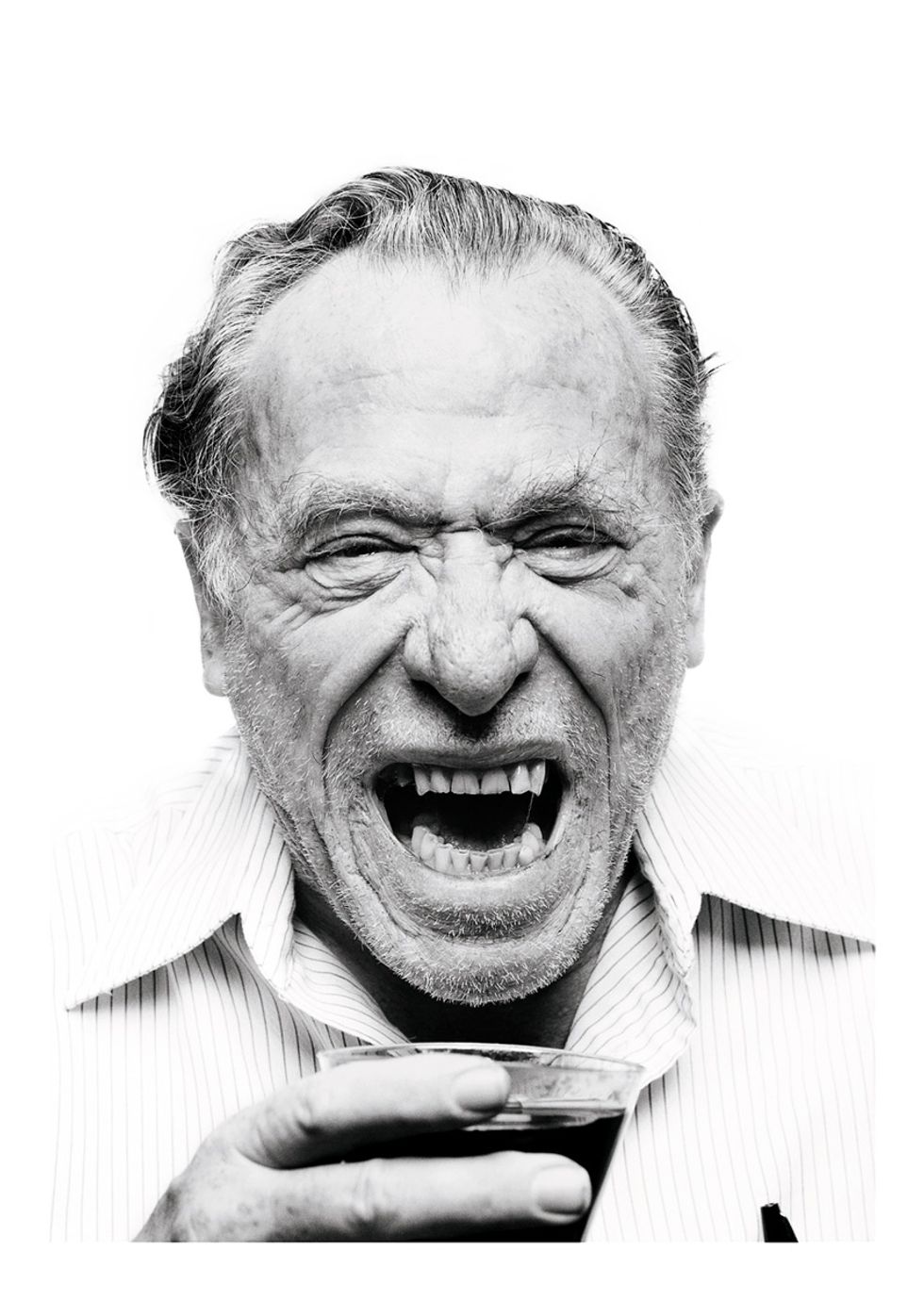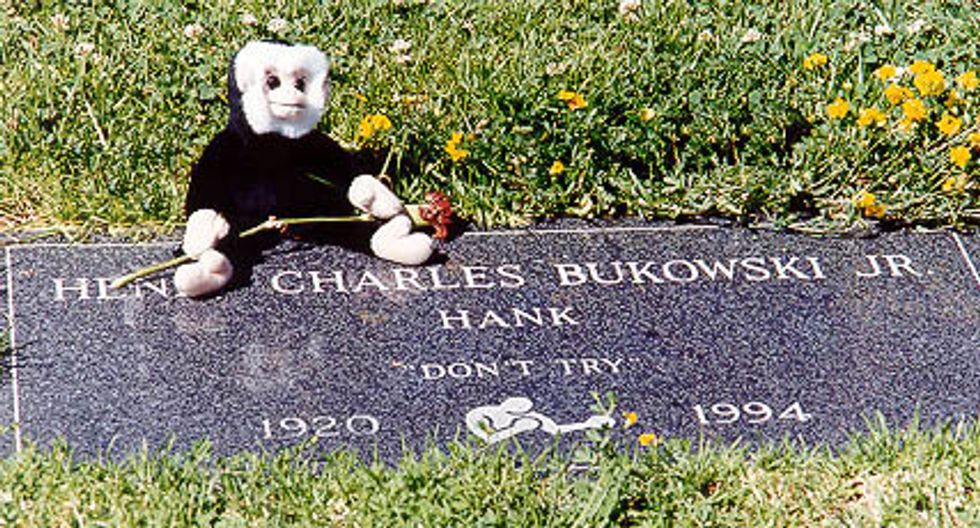One of the most prolific writers of the 20th century—with six novels and countless poetry collections, short stories, and screenplays to his name—would have turned 95 this past Sunday.
Charles Bukowski, a drinker who would have put Hemingway and Fitzgerald to shame, died in '94, but his influence haunts the American psyche like an unshakeable hangover. His visceral, vice-ridden, unapologetically vulgar prose pushed modern literature into using more natural language, but his equally unapologetic way of truth-telling with people and prose made him a somewhat controversial character (mirrored impeccably by Hank Moody in Californication, your next Netflix binge).
Love him or hate him, here are some things we've learned from the big Bukowski from his many, many works.
It's okay to Like Being Alone
"Do you hate people?"
"I don't hate them...I just feel better when they're not around."
Sometimes you just don't feel like dealing with people. Bukowski, a lifelong introvert, encourages us to embrace it. Hide yourself away for a day when dealing with people gets too exhausting—bonus Bukowski points if your only companions are a typewriter and a bottle of gin.
You Have to Let Yourself Lose Your Mind
"Some people never go crazy. What truly horrible lives they must lead."
Though Bukowski's method for achieving madness was hitting the bottle every night, even non-alcoholics can appreciate the need to cut loose and lose your mind a little bit. When you start taking yourself so seriously at work or at school or in life, you lose the excitement, that unique human spark inside you. When you feel yourself getting bored with the repetition of life, just remember to let it go and do something crazy.
Don't Waste Your Time with Regrets
"I'm not one to look back on wanton waste as complete loss—there's music in everything, even defeat."
You can get hung up on the wasted opportunities and mistakes of the past, or you can find the beauty in them and use them to help you move forward. The choice seems fairly simple, but in practice it can be hard to let go.
Don't Do Anything Halfway
"Find what you love and let it kill you."
Besides booze and betting on the ponies at the racetrack, Bukowski's primary love and addiction was the written word. He writes about being consumed by writing, about how poetry kept him sane and helped him organize his otherwise chaotic thoughts. Be it poetry or music or sports or anything, find what captures you and follow it without hesitation—that's the Bukowski way.
You Can't Fake It
"It's when you begin to lie to yourself in a poem in order simply to make a poem that you fail. That is why I do not rework poems."
Sometimes we find ourselves pursuing something—writing, music, science—because we think it will benefit us. Maybe it's what our parents want us to do, or maybe we just like the idea of making a living as a writer. But Bukowski thinks that trying to force what doesn't come naturally to you is silly (though he wouldn't put it quite so nicely). If chemistry doesn't light your fire, maybe it's not the right life path for you. If you feel like you're forcing out a poem without inspiration or inner drive, maybe it's just not for you. Be honest with yourself about what you want and what you enjoy doing; you'll thank yourself when you finally find what you love and let it take you over instead of trying to fit a role you don't enjoy.
Life Can Be Hard...
“I felt like crying but nothing came out. it was just a sort of sad sickness, sick sad, when you can't feel any worse. I think you know it. I think everybody knows it now and then. but I think I have known it pretty often, too often.”
Not everything in life is sunshine and roses, a fact Bukowski is all too familiar with. He chronicles the seemingly hopeless struggle of coming of age during the Depression—with an abusive father, no less—in his novel Ham on Rye.
...But You Can Suck It Up
"Sometimes you climb out of bed in the morning and you think, I'm not going to make it, but you laugh inside—remembering all the times you've felt that way."
Somehow, no matter how many setbacks and heartbreaks and struggles you've encountered, you've managed to make it to this point. So don't worry: things are going to get better.
Just Don't Try
"Somebody asked me: 'What do you do? How do you write, create?' You don't, I told them. You don't try. That's very important: not to try, either for Cadillacs, creation or immortality. You wait, and if nothing happens, you wait some more. It's like a bug high on the wall. You wait for it to come to you. When it gets close enough you reach out, slap out and kill it. Or if you like its looks, you make a pet out of it."
In his final dying wisdom, Bukowski left us one last piece of advice. Inscribed on his gravestone are two simple words: "Don't Try." Putting pressure on yourself to create something beautiful or get good grades or be a certain way never gives you the results you want—and, quite frankly, makes you miserable.
The best thing to do, according to Bukowski, is just to go with it and enjoy the ride.




















